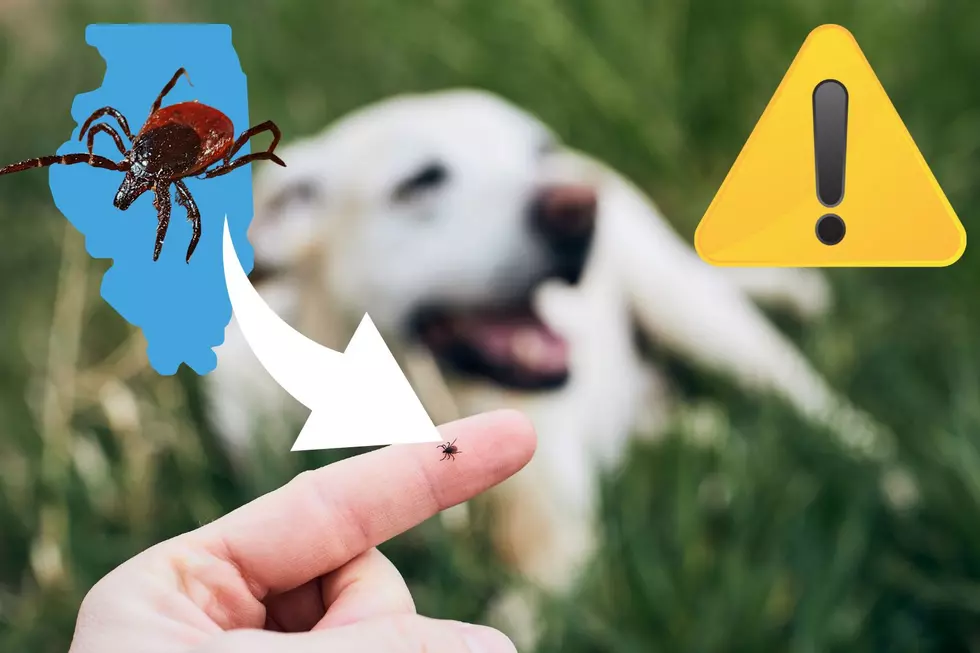
Rare Tick Discovered in Illinois That Lays 2,000 Eggs at a Time
With all the talk about the trillions of Cicadas that will be emerging over the next couple of months, the real concern should be with the tick season that is heating up.
READ MORE: Simple Yardwork Hacks to Keep You Safe During Prime Tick Season
I've yet to see a single Cicada but have already witnessed 2 ticks this season, but luckily neither of them was attached to me in any way.
Tick Discovered in Illinois That Can Be Fatal For Livestock
We're getting news from the Illinois Department of Agriculture about the discovery of an "invasive species" tick that in some cases has been fatal for livestock.
Illinois is now the 20th U.S. state where an invasive species of Asian longhorned tick has been found during an Illinois Department of Public Health "grant-funded active tick surveillance program."

The National Veterinary Services Laboratory confirmed the identification of the Asian longhorned tick,
IDPH’s active tick surveillance program was instrumental in discovering the Asian longhorned tick in Illinois. Although the role that this tick will play in the transmission of infections in humans is yet to be determined, the Department of Public Health is working closely with the Department of Agriculture to monitor the presence of the tick and investigate the risk it carries to both humans and livestock. -IDPH Director Dr. Sameer Vohra
What Does the Asian Longhorned Tick Look Like?
According to the Illinois Department of Agriculture, the Asian longhorned tick is very small, light brown, and about the size of a sesame seed.
They're able to carry diseases that can be fatal to cattle, and the females can lay up to 2,000 eggs so these are rapidly spreading.
If you need a tick or other bug repellent, CLICK HERE to get a selection of the best place to go.
States with the most registered hunters
Gallery Credit: Meagan Drillinger
LOOK: The most extreme temperatures in the history of every state
Gallery Credit: Anuradha Varanasi




